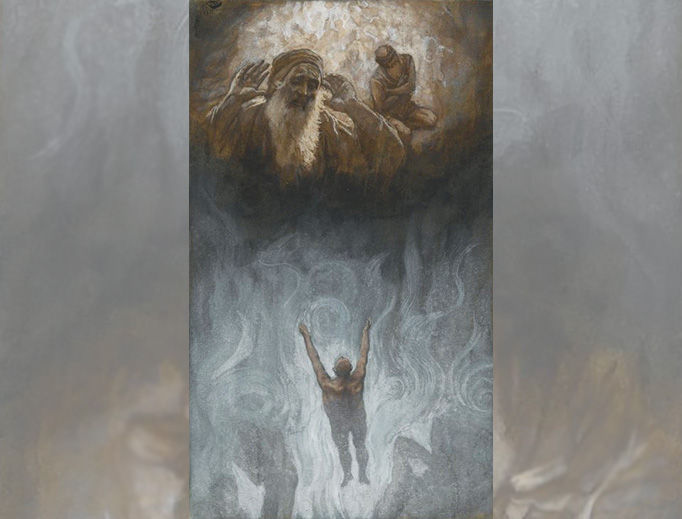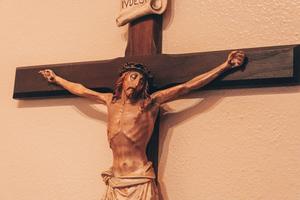Why the Parable About Lazarus and the Rich Man Is Still Relevant
User’s Guide to Sunday, Sept. 25

Sunday, Sept. 25, is the 26th Sunday of Ordinary Time. Mass readings: Amos 6:1a, 4-7; Psalm 146:7, 8-9, 9-10; 1 Timothy 6:11-16; Luke 16:19-31.
Today’s Gospel is the familiar parable about Lazarus and the rich man, which we will look at in three stages.
The Ruin of the Rich Man
As the Gospel opens, we see the rich man (some call him Dives, which simply means “rich”): “There was a rich man who dressed in purple garments and fine linen and dined sumptuously each day.”
It is clear that he lives very well and has the ability to help the poor man, Lazarus, who is outside his gate. But he does not do so. The rich man’s sin is not so much one of hate as of indifference.
He is living in open rejection of one of the most significant Kingdom values: love of the poor. Hence, this rich man has willfully and repeatedly rejected the Kingdom and is ruined by his greed and insensitivity. He lands in hell because he doesn’t want heaven, where the poor are exalted (Luke 1:52).
Abraham explains the great reversal to him: “My child, remember that you received what was good during your lifetime, while Lazarus likewise received what was bad; but now he is comforted here, whereas you are tormented.”
The Rigidity of the Rich Man
You might expect the rich man to be repentant in the end and to have a change a heart, but he does not. Looking up into heaven, he sees Lazarus next to Abraham, but rather than finally recognizing Lazarus’ dignity and seeking his forgiveness, he tells Abraham to send Lazarus to hell with a pail of water to refresh him.
Notice, too, that the rich man does not ask to be admitted to heaven: He regrets his current torment but does not see or desire heaven as a solution to that. This helps to explain why hell is eternal.
It would seem that there is a mystery of the human person that we must come to accept: that we come to a point in our life when our character is forever fixed, when we no longer change.
When exactly this occurs is not clear; perhaps it is at death itself. The Fathers of the Church often thought of the human person as clay on a potter’s wheel. As long as clay is on the wheel and moist, it can be molded, changed and fashioned. But there comes a point when the clay is taken off the wheel and placed in the fiery kiln (fire refers to judgment day; see 1 Corinthian 3:15), at which time its shape is forever fixed and cannot be changed.
The Reproof for the Rest of Us
The rich man, though he cannot or will not change, would like to warn his brothers. He thinks that perhaps if Lazarus would rise from the dead and warn them, they would repent.
We are the rich man’s brethren, and we are hereby warned: “Abraham said, ‘If they will not listen to Moses and the prophets, neither will they be persuaded if someone should rise from the dead.’”
The Scriptures are clear to lay out the way before us. We ought not need an angel, or a ghost or some extraordinary sign.
The Scriptures and the teachings of the Church should be sufficient. Their message is clear enough: daily prayer, daily Scripture, weekly Eucharist, frequent confession and repentance all lead to a change of heart wherein we begin to love the kingdom of God and its values more fully. We become more merciful, kind, generous and loving toward the poor and needy, patient, chaste, devout and self-controlled ourselves.
- Keywords:
- msgr. charles pope
- user’s guide to sunday
- user's guide to sunday
- change of heart
- christian charity















